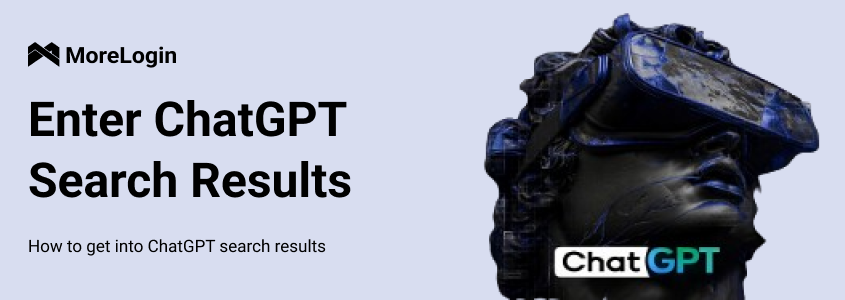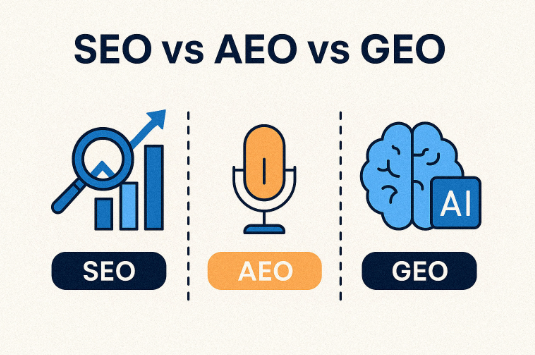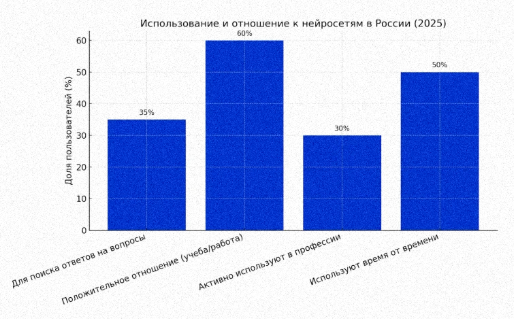
- Product

- Pricing
- Affiliate Program
- Use Cases
- Resource


The use of neural networks for information search is growing rapidly. By 2025, over 35% of Russians prefer ChatGPT and similar tools over traditional search engines. According to Ahrefs, the integration of AI-generated answers in Google has significantly affected user behavior: from March 2024 to March 2025, the CTR for informational queries dropped from 7.3% to 2.6% for top-ranking websites. As a result, many content platforms have lost around 30% of organic traffic since the beginning of the year.
To avoid further traffic loss, website owners need to focus on getting their content into GPT responses.

AEO (Answer Engine Optimization) involves optimizing content so that AI generates direct answers based on your site’s material, mentioning your brand, product, or service.
GEO (Generative Engine Optimization) targets content formatting and accessibility for generative AI models, increasing the chances that ChatGPT and similar systems cite your site as a source with a backlink.
More than 2.5 billion queries are sent to ChatGPT every day. From early 2022 to mid-2024, interest in these technologies grew 15x. By the end of 2024, 63% of Russians had used AI in daily life, and by 2025, 35% used it professionally.

Some predictions suggest that by 2026, Google could lose up to 25% of its organic traffic due to AI adoption. For businesses, missing from AI-generated responses means decreased visibility and user reach.
Responses are generated using training data — open sources such as websites, books, articles, forums, documentation, code, etc.
In browsing mode, ChatGPT uses Bing to search in real time, analyze pages, and generate context-rich summaries. The process involves:
Sending refined search queries
Reading multiple sources
Narrowing down results for relevance
For example: a query like “profitable ad verticals in 2025” might be followed by deeper searches such as “Facebook Ads verticals” or “nutra creatives 2025”.
Since ChatGPT browsing uses Bing, your site must be visible there. Use IndexNow (via WordPress, Wix, Shopify plugins) for fast indexing.
Use:
Proper heading hierarchy
Schema markup (e.g., FAQPage, Q&A)
Semantic tags
This helps AI models interpret your content more accurately.
Mention:
Brands, verticals, partners (e.g., VAVADA, 1win, PIN-UP Partners)
Specific formats like expert interviews, vertical case studies, or affiliate programs
This helps GPT connect your content with user queries.
Use tools like MoreLogin to:
Test how AI and search engines perceive your site
Simulate user behavior
Fine-tune behavior signals
Write clearly for humans
Use facts, examples, numbers
Keep data updated
Maintain topical focus
Ensure fast loading and mobile optimization
Include “About Us” sections
Highlight team credentials
Get mentions from trusted platforms: Wikipedia, LinkedIn, VC.ru, Quora, Habr, Reddit
Submit to Bing and Google Discover
Use open RSS feeds
Add Wikipedia entries where possible
Adding a “Ask AI” or “Share with ChatGPT” button on your site allows users to ask ChatGPT about your content. When clicked:
The chat window opens with your content preloaded
The prompt and your URL are stored in ChatGPT’s logs
Increases chance of being cited in other responses
Implementation options:
HTML link with proper URL
GitHub plugin for WordPress
Embedded UX features like “Find similar offers” in traffic arbitrage cases
There’s no direct way to track inclusion in ChatGPT outputs. You can ask questions like:
“Do you know the site [your site]?”
“What can you tell me about [your site]?”
“Is [your site] mentioned often?”
But this is not a reliable method for gauging real-time or frequent inclusion in user responses.
Currently, direct traffic from ChatGPT is low, especially in grey niches like traffic arbitrage, due to limited relevance in GPT responses. Moreover, OpenAI does not provide click-through analytics.
Still, GPT traffic is qualitatively similar to organic search traffic — users seek relevant, helpful information. Its share will likely grow.
GPT-generated search results won’t fully replace traditional SEO or search engines, and AEO/GEO won’t replace SEO, but:
AI is already reshaping traffic flows
You must optimize for AI visibility now to maintain presence
By implementing Bing indexing, structured markup, high-quality content, and entity mentions, you significantly increase the chances of being featured in AI responses.